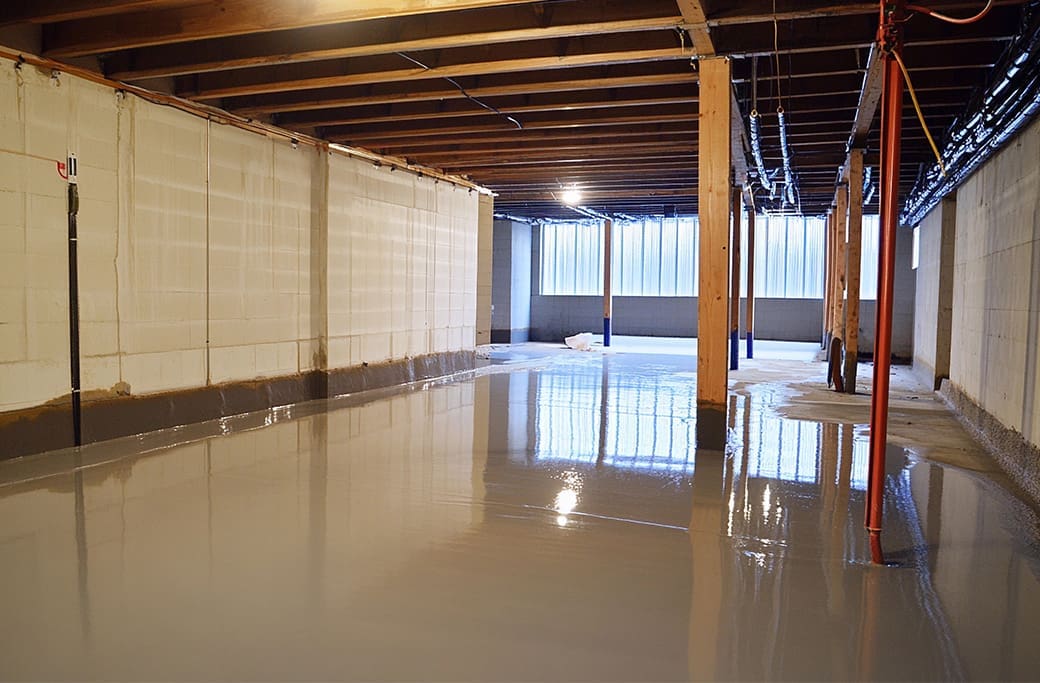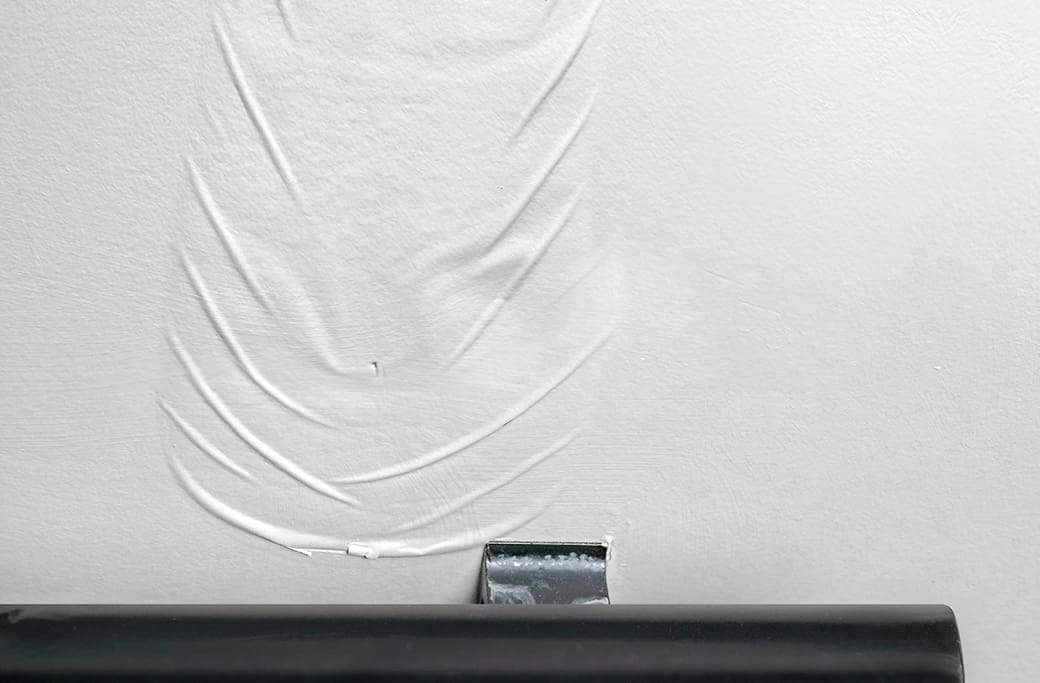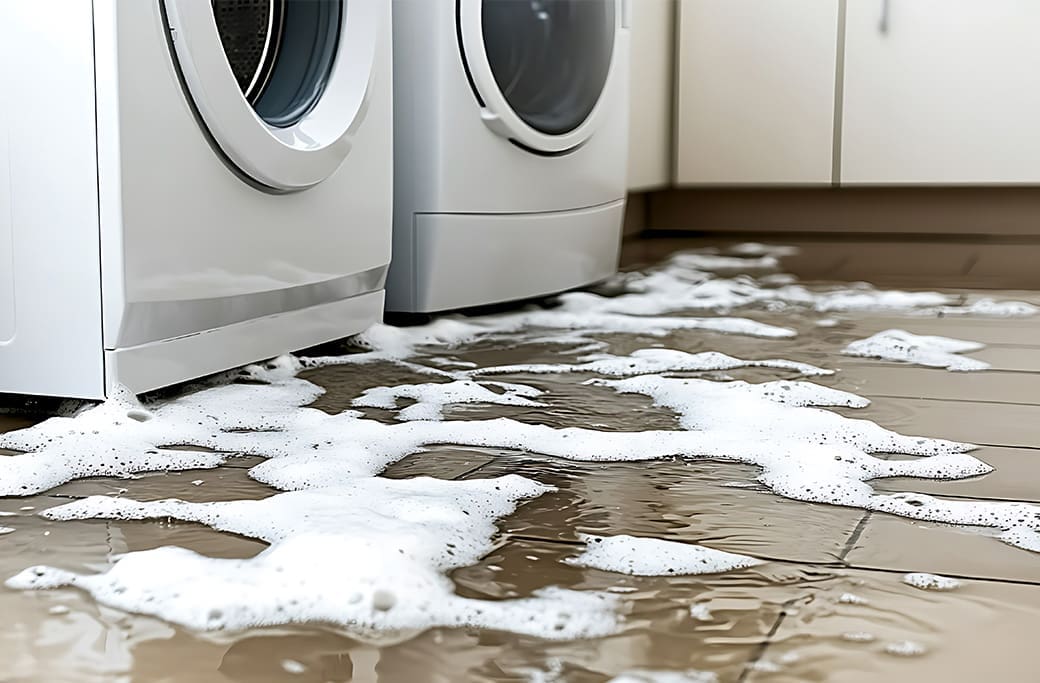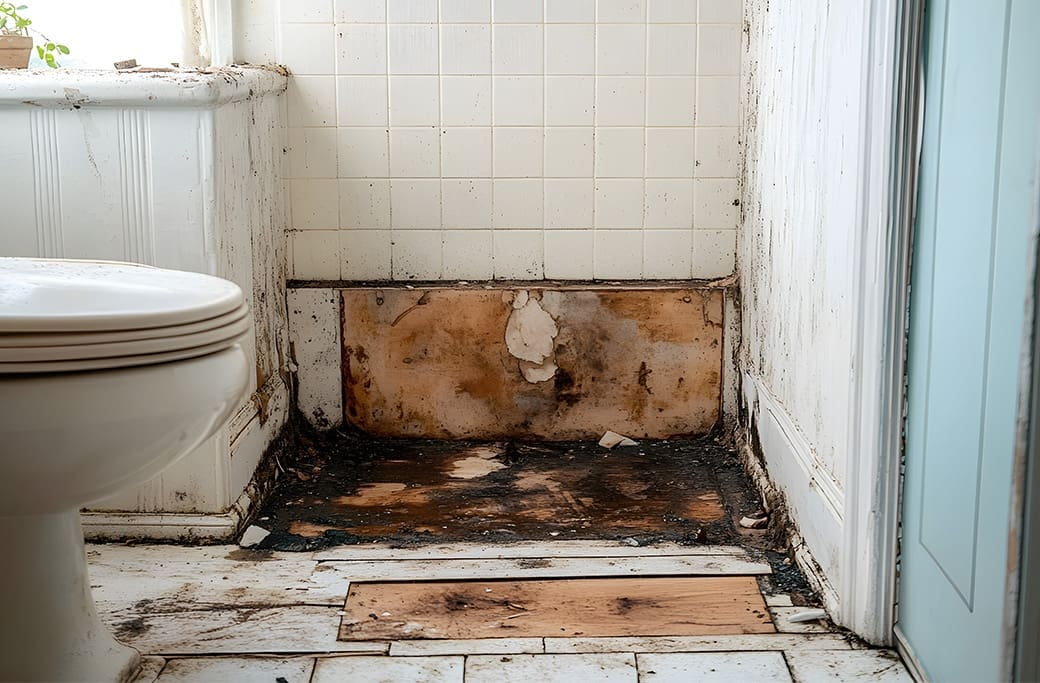
Your washing machine hums quietly in the background. Your dishwasher cycles through its evening routine. Your water heater sits dependably in the basement, doing its job day after day. These appliances make daily life easier—but they can also become the source of thousands of dollars in water damage if something goes wrong.
Many homeowners don’t realize that a slow drip from an aging connection or a burst hose could lead to major repairs, mold growth, and weeks of disruption. The good news? Most appliance-related water damage is preventable with smart maintenance and quick action when problems arise.
We will help you identify the biggest appliance risks in your home, recognize warning signs before disaster strikes, and understand why having STOP Restoration Winston-Salem saved in your phone could save you time, money, and stress when the unexpected happens.
Biggest Offenders: Appliances Most Likely to Cause Water Damage
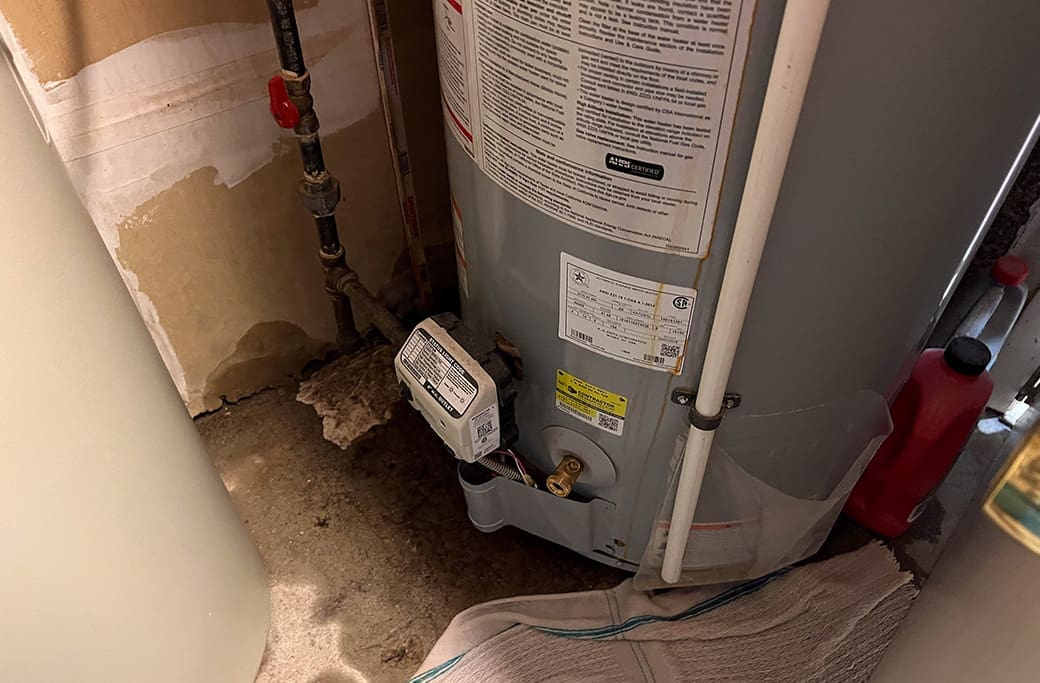
Washing Machines
Your washing machine handles hundreds of gallons of water each week, making it one of the most common sources of household flooding. The most frequent culprits are burst hoses, loose connections, and overflow issues.
Common problems include:
-
-
- Rubber hoses that crack or burst under pressure
- Loose connections between the machine and water supply
- Drain clogs that cause overflow
- Door seal failures in front-loading machines
-
Prevention tip: Replace standard rubber hoses with braided stainless steel versions, which are more durable and less likely to burst. Check all connections annually and ensure your machine is level to prevent excess vibration that can loosen fittings.
Dishwashers
Dishwashers may seem contained, but they’re actually prone to several types of leaks that can damage your kitchen flooring and cabinets. Problems often develop gradually, making them easy to miss until significant damage occurs.
Watch for these issues:
-
-
- Worn door seals that allow water to escape during cycles
- Clogged drain lines that cause backup
- Cracked or damaged supply lines
- Loose connections under the unit
-
Prevention tip: Regularly inspect the area around your dishwasher for pooling water or damp spots on nearby flooring. Check door seals for cracks or food debris that might prevent proper sealing.
Refrigerators with Ice Makers or Water Dispensers
These convenient features require water lines that run behind and sometimes under your refrigerator. When these connections fail, they often create slow leaks that go unnoticed for weeks or months, causing hidden damage to flooring and walls.
Common failure points:
-
-
- Supply line connections that loosen over time
- Plastic tubing that cracks or develops pinhole leaks
- Internal water filter housings that fail
- Drainage issues in automatic ice makers
-
Prevention tip: Inspect the supply line connection every 6-12 months, looking for signs of moisture or mineral buildup. If you notice your ice maker making unusual sounds or producing less ice, have it checked promptly.
Water Heaters
Water heaters are particularly dangerous because they hold 30-80 gallons of water under pressure. When they fail, the results can be catastrophic. Most units need replacement every 8-12 years, but problems can develop earlier.
Warning signs of failure:
-
-
- Rusty or discolored water from hot water taps
- Strange noises like popping or rumbling
- Visible rust on the tank exterior
- Water pooling around the base
- Reduced hot water capacity
-
Prevention tip: Drain sediment from your water heater annually and have it professionally inspected if it’s approaching 10 years old. Consider installing a water heater pan with a drain connection to minimize damage if a leak occurs.
HVAC Systems
Your heating and cooling system processes moisture from the air, creating condensation that must be properly drained. When drain lines become blocked or overflow, water can accumulate in hidden areas like attics, crawl spaces, or utility rooms.
Common HVAC water problems:
-
-
- Blocked condensate drain lines
- Overflow from clogged drip pans
- Frozen evaporator coils that leak when thawing
- Damaged ductwork in humid areas
-
Prevention tip: Schedule annual HVAC maintenance to ensure drain lines are clear and properly functioning. Change air filters regularly, as dirty filters can cause system problems that lead to water issues.
Warning Signs Homeowners Should Never Ignore
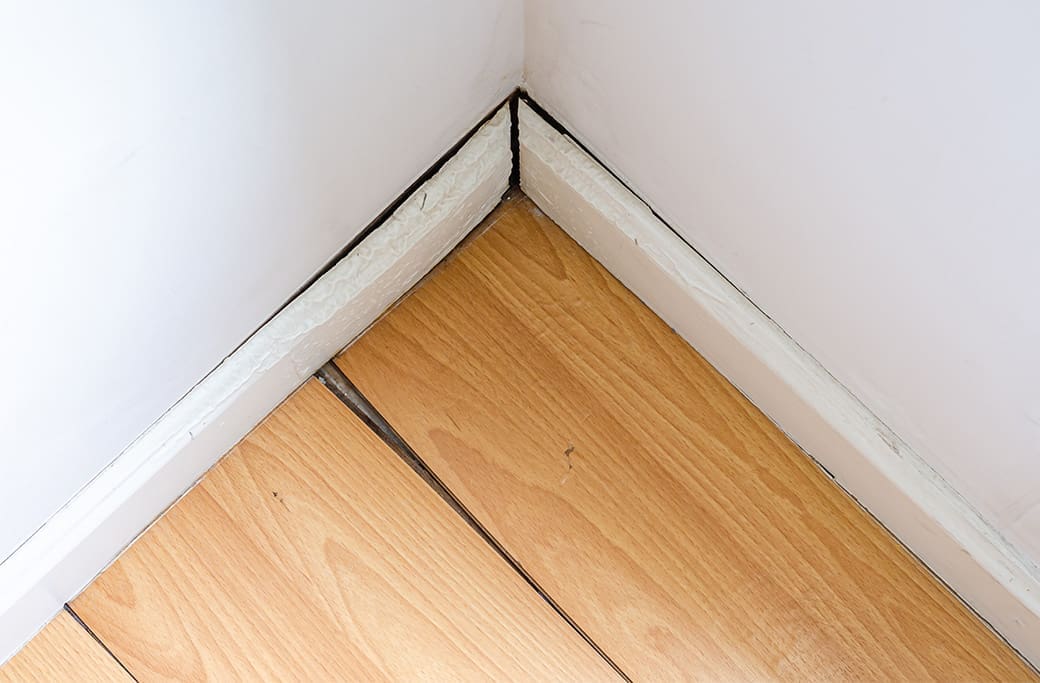
Recognizing early warning signs can help you address problems before they become emergencies. Here are the red flags that demand immediate attention:
Unusual odors: Musty smells or persistent dampness near appliances often indicate hidden moisture problems that could lead to mold growth.
Visual changes: Warped baseboards, bubbling paint, or discolored walls around appliances suggest water has been present longer than you might think.
Utility bill increases: An unexplained spike in your water bill could indicate a hidden leak that’s wasting water and potentially causing damage.
Sounds of running water: If you hear water running when all fixtures and appliances are off, you likely have a leak that needs immediate attention.
Appliance performance changes: If your ice maker produces less ice, your dishwasher leaves dishes wetter than usual, or your washing machine takes longer to fill, these could be signs of supply line problems.
Immediate Steps to Take If You Discover an Appliance Leak
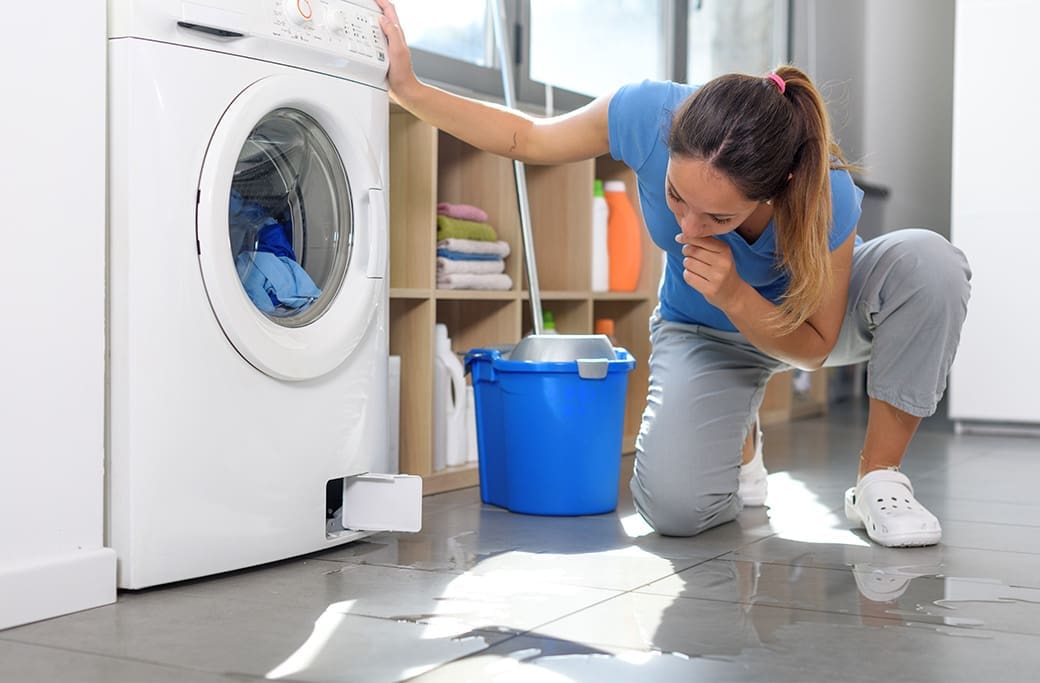
Quick action can mean the difference between minor repairs and major water damage restoration. Here’s what to do:
1. Stop the water source: Turn off the water supply to the affected appliance if possible. Most appliances have shut-off valves nearby, but you may need to turn off water at the main valve for severe leaks.
2. Disconnect power safely: Turn off electrical power to the appliance at the circuit breaker. Never handle electrical components if there’s standing water present.
3. Remove standing water: Use mops, towels, or a wet vacuum to remove visible water quickly. However, don’t ignore what might be behind walls or under flooring—water travels and can cause hidden damage.
4. Document the damage: Take photos for insurance purposes before moving items or starting cleanup.
5. Call STOP Restoration immediately: Water damage progresses rapidly, and professional intervention can prevent mold growth and structural damage that will cost far more to repair later.
Why Choose STOP Restoration Winston-Salem
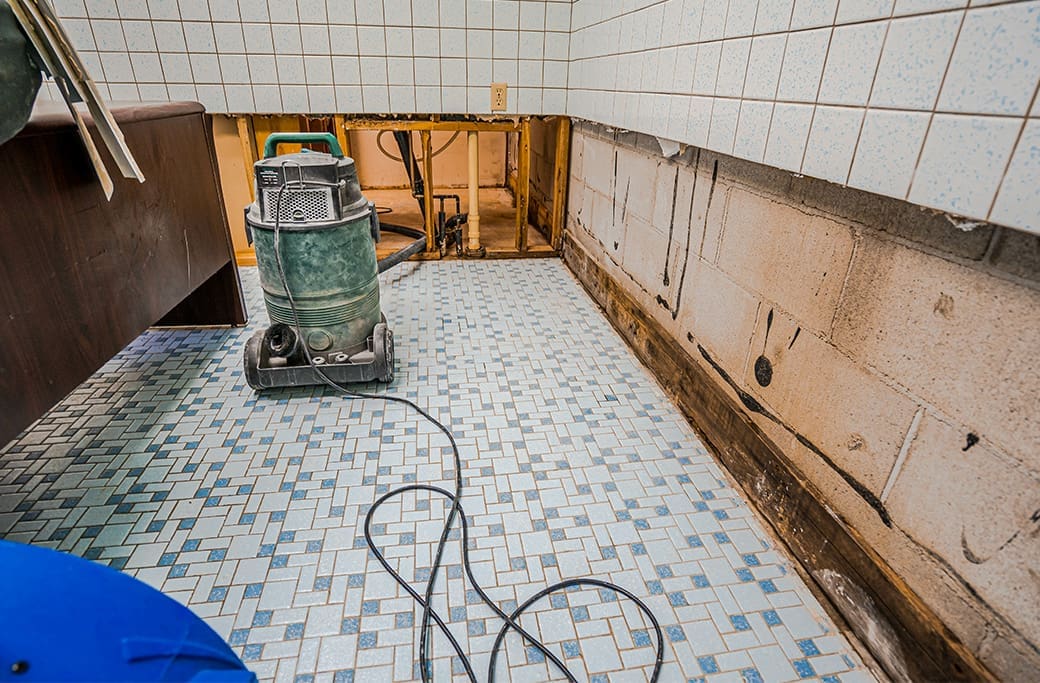
When appliance leaks happen, time is your enemy. Every hour that passes allows water to spread further, seep deeper, and cause more damage. Having STOP Restoration Winston-Salem already saved in your contacts means you can get help immediately instead of frantically searching for a water damage restoration company.
Here’s why we should be your first call:
24/7 availability: Water damage doesn’t wait for business hours. We’re available around the clock to respond to emergencies in Winston-Salem and throughout the Piedmont Triad region.
Rapid response: Our team arrives quickly with professional-grade equipment to begin water extraction and drying immediately, minimizing damage and preventing mold growth.
Comprehensive service: We handle everything from initial water removal to complete restoration, including structural drying, mold prevention, and repairs. You won’t need to coordinate multiple contractors.
Insurance expertise: We work directly with your insurance company to document damage, provide necessary reports, and ensure your claim is processed smoothly.
Local knowledge: As part of the Winston-Salem community, we understand the specific challenges homes in our area face and have the experience to address them effectively.
Preventative Maintenance Tips to Reduce Your Risk
The best way to avoid appliance-related water damage is through regular maintenance and vigilance:
Replace supply hoses every 5 years: Even if they look fine, rubber hoses deteriorate over time. Mark replacement dates on your calendar and stick to the schedule.
Don’t overload appliances: Washing machines and dishwashers work harder when overloaded, putting extra stress on seals and connections.
Check behind and under appliances quarterly: Look for signs of moisture, rust, or mineral buildup that could indicate developing problems.
Maintain proper ventilation: Ensure areas around appliances have adequate airflow to prevent moisture accumulation.
Schedule professional inspections: Have your HVAC system serviced annually and consider having older appliances inspected by qualified technicians.
Consider a home moisture inspection: If you’re unsure about potential risks in your home, STOP Restoration can perform a comprehensive assessment to identify vulnerabilities before they become problems.
Frequently Asked Questions
1. How can I tell if my appliance is leaking water?
Look for signs like pooling water, damp spots, musty odors, or warped flooring near your appliances. An unexpected increase in your water bill or changes in appliance performance (e.g., ice makers producing less ice) may also indicate a hidden leak.
2. What should I do if I discover water damage from an appliance?
Turn off the water supply to the appliance, disconnect the power safely, and remove visible water. Document the damage with photos for insurance purposes and call STOP Restoration at 336-829-5345 immediately for professional assistance.
3. How often should I replace appliance hoses and connections?
Replace rubber supply hoses every 5 years, even if they appear fine. Upgrade to braided stainless steel hoses for better durability. Check all connections annually for signs of wear or moisture.
4. Can I prevent appliance-related water damage entirely?
While you can’t eliminate all risks, regular maintenance, prompt repairs, and professional inspections significantly reduce the chances of appliance-related water damage. Installing water sensors near high-risk appliances can also help detect leaks early.
5. How long does it take for STOP Restoration to respond to emergencies?
We’re available 24/7 and respond quickly to minimize damage. Our team arrives with professional-grade equipment to begin water extraction and drying right away.
6. Will STOP Restoration help with my insurance claim?
Yes, we work directly with your insurance company to document damage, provide necessary reports, and ensure your claim is processed smoothly.
7. What areas does STOP Restoration Winston-Salem serve?
We proudly serve Winston-Salem, Advance, Clemmons, Jamestown, Kernersville, Lexington, Oak Ridge, Pfafftown, Greensboro, High Point, and Lewisville.
8. What are the most common warning signs of appliance failure?
Common warning signs include strange noises, visible rust, reduced appliance performance, musty odors, and higher utility bills. Address these issues promptly to avoid major damage.
Water Damage from Appliances: Prevention & Response Tips
Modern appliances have transformed how we live, making daily tasks easier and more convenient. But with that convenience comes responsibility. Regular maintenance, awareness of warning signs, and quick action when problems arise can protect your home from significant damage.
Most importantly, having a trusted restoration partner ready to respond can make all the difference when prevention isn’t enough. STOP Restoration Winston-Salem has the expertise, equipment, and availability to help you recover quickly from appliance-related water damage.
Don’t wait until disaster strikes to find help. Add STOP Restoration to your contacts today: 336-829-5345. Because when the unexpected happens, you shouldn’t waste time searching for help—you should already know who to call.
Our team of technicians serves Winston-Salem, Advance, Clemmons, Jamestown, Kernersville, Lexington, Oak Ridge, Pfafftown, Greensboro, High Point, and Lewisville. We’re here 24/7 to help protect your home and restore your peace of mind.

